FOUND AN ANIMAL?
Here's what you can do.
FOUND AN ANIMAL THAT NEEDS HELP?
We are open for wildlife patient drop-offs seven days a week, from 9:00 a.m. to 4:00 p.m. When you arrive, please drive to the north side of our building and follow the signs to the Terracon Rescue Hub. Please be prepared to share some important details, such as:
- Where the animal was found?
- Any visible injuries or concerns?
- Your contact information for follow-up questions.
If you find wildlife in need of help, please call Wildlife Haven Rehabilitation Centre at 204-202-3806. Our phone lines are open from 9:00 a.m. to 5:00 p.m., seven days per week.
If you would like an update on a patient in care at Wildlife Haven, please email patientinquiries@wildlifehaven.ca with the species & date it was dropped off and we will update you as soon as we are able.
DROP OFF LOCATIONS
If you cannot make it to our centre in Ile des Chênes, we also have two patient drop off locations in the city. Please call our centre before dropping patients off at these locations:
Assiniboine Park Zoo
Wildlife Rescue and Drop-Off Centre (West of main parking lot)
2595 Roblin Blvd, Winnipeg
Open 7 days per week, 9am to 4pm
BRIDGWATER VETERINARY HOSPITAL
100-350 North Town Road, Winnipeg
Open 24hr/day, 7 days a week
WILD BIRDS UNLIMITED
11 Reenders Dr, Winnipeg
10 a.m. - 4 p.m. from Monday to Saturday
RURAL AREAS
Please contact your local conservation office.
ANIMALS ELIGIBLE
FOR CARE
Wildlife Haven cares for over 170 species of native Manitoba wildlife including mammals, song birds, reptiles, raptors, and waterfowl.
We do not take in skunks, raccoons, mice, wolves, bears, fish, invertebrates or hooved animals such as deer, moose, or elk.
We also do not take in cats, dogs, domesticated animals, exotic reptiles, or invasive species.
Please note: We do not offer wildlife relocation nor accept healthy nuisance trapped mammals.
WILDLIFE CONSIDERATIONS
DON'T feed a wild animal cows' milk, or formulas bought over the counter.
These formulas do not meet the animal’s requirements and in most cases, cause great harm to the animal.
DON'T keep wildlife as pets.
It is illegal to keep wildlife as pets. Bringing a wild animal into your home can be very dangerous to your household. Many species of wildlife can be vectors for diseases that are dangerous and sometimes deadly to humans and their pets. Wild animals can imprint on humans, making them unable to fend for themselves in the wild. The survivability of a wild animal is greatly lowered the longer it is in care with an untrained individual. Wildlife that are reliant on humans for food can become dangerous and aggressive.
DON'T feed wildlife.
Habituation can lead to nuisance animals, which are often killed, gets them too comfortable with humans. Some animals such as deer have a very sensitive digestive system, feeding them unnatural foods can lead to nutritional deficiencies, health problems, and even death. Animals relying on humans for food cannot survive on their own in the wild.
DON'T remove infant or orphaned wildlife from their nest.
Unless you are sure that they are truly injured or orphaned, do not remove baby wildlife from their nest. If you do believe the animals to be injured or orphaned, contact Wildlife Haven for further information.
DON'T pet the injured or orphaned animals.
As cute as they may be, do not pet an injured or orphaned animal. The animal will be stressed and although, they may be sitting still while you are petting them, they are terrified. Any undue stress can cause them to have heart failure. To avoid this, keep them in a quiet, dark and warm place. Keep them away from the smells and sounds of your pets.
DON'T feed injured wildlife.
Unless specifically advised by Wildlife Haven, do not feed Wildlife. You may give them a shallow dish of water, nothing deep because the animal may drown if injured. The animal may have an injury that will be worsened if they eat. This takes vital energy away from essential functions and may even cause death.
DON'T let pets around injured or orphaned wildlife.
Keep your pets away from the injured wildlife whenever possible, this includes travelling to the drop-off locations provided for wildlife. The travel alone is very stressful for the animal, your pet in close quarters will only make it worse.
DON'T feed wildlife in your yard late into fall and stop feeding during the winter.
If you feed the animals in your yard, they may learn to depend on the availability of food from you and may not store for the winter months. So if you are going to feed later in the fall, it is best to continue feeding until the spring months.
DON'T approach high-risk species.
Unless specifically advised by the Wildlife Haven, do not approach species that have a high risk of disease. These include but are not limited to skunks, raccoons, woodchucks, muskrats, beavers, bats, mice, foxes, coyotes, or wolves.
REMEMBER, WILDLIFE CAN DE DANGEROUS
Here are some pointers to follow, if you come across injured, sick or orphaned wildlife:
